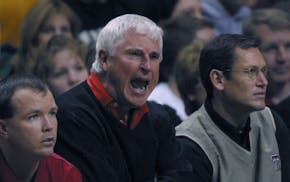It's election season, and one of the greatest privileges we have in America is selecting our own leaders. While we might have widely varied opinions of who should win, the fundamental characteristics of good leadership remain constant.
A sociology professor from one of the country's major universities spent his life studying leadership by tracing the careers of 5,000 former students. When he was asked how you spot a leader, he said, "I have come to the conclusion that the only way one can determine a leader is to look at the person and see if anybody is following."
Leadership is a difficult skill to measure, but it is certainly easy to determine when leadership is not present in an organization.
In four years of executive seminars conducted by Santa Clara University and the Tom Peters Group/Learning Systems, more than 5,200 senior managers were asked to describe the characteristics they most admire in a leader. Here are the top 10 characteristics, as reported in Management Review magazine: honest, competent, forward-looking, inspiring, intelligent, fair-minded, broad-minded, courageous, straightforward and imaginative.
Warren Bennis spent much of his life researching leadership and has written several books on the subject of what makes leaders. Warren is a distinguished professor of business administration and the founding chairman of the Leadership Institute at the University of Southern California, which I had the honor of serving on the board. In 2007, Businessweek called him one of the 10 business school professors who have had the greatest influence on business thinking.
Bennis traveled around the country spending time with 90 of the most effective and successful leaders in the nation -- 60 from corporations and 30 from the public sector. His goal was to find these leaders' common traits. At first, he had trouble pinpointing any common traits, as the leaders were more diverse than he had expected.
But he later wrote: "I was finally able to come to conclusions, of which perhaps the most important is the distinction between leaders and managers. Leaders are people who do the right thing; managers are people who do things right.
"Both roles are crucial, but they differ profoundly. I often observe people in top positions doing the wrong thing well," he wrote in his book "Why Leaders Can't Lead."
I tend to think of the differences between leaders and managers as the difference between those who master the context within which they operate and those who surrender to it. There are other differences, as well, and they are enormous and crucial. Bennis details them in his book, "On Becoming A Leader," and they include:
• The manager administers; the leader innovates.
• The manager is a copy; the leader is an original.
• The manager maintains; the leader develops.
• The manager focuses on systems and structure; the leader focuses on people.
• The manager relies on control; the leader inspires trust.
• The manager has a short-range view; the leader has a long-range perspective.
• The manager asks "how" and "when"; the leader asks "what" and "why."
• The manager always has his eye on the bottom line; the leader has his eye on the horizon.
• The manager imitates; the leader originates.
• The manager accepts the status quo; the leader challenges it.
• The manager is the classic good soldier; the leader is his own person.
Mackay's Moral: Good leaders develop more than good employees, they develop more good leaders.
Harvey Mackay is a Minneapolis businessman. Contact him at 612-378-6202 or e-mail harvey@mackay.com.
Mackay: Approach AI with a mindset of collaboration rather than fear

Mackay: The key to winning in sports, business and life is practice

Mackay: Humor can make even dire situations bearable

Mackay: Want a raise? How and when you ask for it matter

